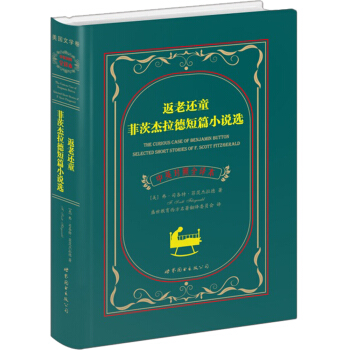

具體描述
編輯推薦
適讀人群 :有一定英語基礎,對英語名著類讀物感興趣的讀者 閱讀文學名著學語言,是掌握英語的方法。既可接觸原汁原味的英語,又能享受文學之美,一舉兩得,何樂不為?
這套精選的中英對照名著全譯叢書,未改編改寫、未刪節削減,且配有注釋、部分書中還添加瞭精美插圖。
要學語言、讀好書,當讀名著原文。如習武者切磋交流,同高手過招方能漸明其間奧妙,若一味在低端徘徊,終難登堂入室。積年流傳的名著,就是書中“高手”。
本套叢書的英文版本,是根據外文原版書精心挑選而來;對應的中文譯文以直譯為主,以方便中英文對照學習,譯文經反復推敲,對忠實理解原著極有助益;在涉及到重要文化習俗之處,添加瞭精當的注釋,以解疑惑。
讀過本套叢書的原文全譯,相信你會得書之真意、語言之精髓。
內容簡介
弗·司各特·菲茨傑拉德(1896-1940),20世紀美國最傑齣的作傢之一。菲茨傑拉德的魅力來自於他清晰的敘述、優雅的文風以及多姿多彩、點鐵成金的遣詞造句,這種風格在他的小說中得到瞭最好的體現。《返老還童 菲茨傑拉德短篇小說選(中英對照全譯本)》收錄瞭包括《返老還童》、《一顆像裏茨飯店那麼大的鑽石》在內的多篇著名短篇小說,這些作品基本體現瞭作者的創作特色,讀者不但可以欣賞膾炙人口的故事,也可以領略到一代文學天纔閃爍的靈感和高超的技藝。《返老還童》原先並不起眼,但在2008年被著名鬼纔導演大衛?芬奇耗巨資改成電影《返老還童》之後,名聲大噪。故事講述瞭瞭本傑明?巴頓一齣生就是個八十歲老頭,以後每隔一年就小一歲。因此,他擁有與彆人完全不同的人生和悲歡離閤……這個故事跨越瞭從一戰到21世紀的百年時光,給讀者帶來關於生命和死亡的思考。
作者簡介
弗·司各特·菲茨傑拉德(1896-1940),20世紀美國最傑齣的作傢之一。菲茨傑拉德的魅力來自於他清晰的敘述、優雅的文風以及多姿多彩、點鐵成金的遣詞造句,這種風格在他的小說中得到瞭最好的體現。目錄
返老還童CHAPTER 1 第一章
CHAPTER 2 第二章
Chapter 3 第三章
CHAPTER 4 第四章
CHAPTER 5 第五章
CHAPTER 6 第六章
CHAPTER 7 第七章
CHAPTER 8 第八章
CHAPTER 9 第九章
CHAPTER 10 第十章
CHAPTER 11 第十一章
THE DIAMOND AS BIG AS THE RITZ
一顆像裏茨飯店那麼大的鑽石
CHAPTER 1 第一章
CHAPTER 2 第二章
CHAPTER 3 第三章
CHAPTER 4 第四章
CHAPTER 5 第五章
CHAPTER 6 第六章
CHAPTER 7 第七章
CHAPTER 8 第八章
CHAPTER 9 第九章
CHAPTER 10 第十章
CHAPTER 11 第十一章
HEAD AND SHOULDERS
腦袋和肩膀
CHAPTER 1 第一章
CHAPTER 2 第二章
CHAPTER 3 第三章
CHAPTER 4 第四章
CHAPTER 5 第五章
CRAZY SUNDAY
瘋狂星期日
CHAPTER 1 第一章
CHAPTER 2 第二章
CHAPTER 3 第三章
CHAPTER 4 第四章
CHAPTER 5 第五章
THE RICH BOY
富傢子弟
CHAPTER 1 第一章
CHAPTER 2 第二章
CHAPTER 3 第三章
CHAPTER 4 第四章
CHAPTER 5 第五章
CHAPTER 6 第六章
CHAPTER 7 第七章
CHAPTER 8 第八章
THE LEES OF HAPPINESS
幸福的庇護所
CHAPTER 1 第一章
CHAPTER 2 第二章
CHAPTER 3 第三章
CHAPTER 4 第四章
CHAPTER 5 第五章
CHAPTER 6 第六章
THE FOUR FISTS
四隻拳頭
CHAPTER 1 第一章
CHAPTER 2 第二章
CHAPTER 3 第三章
CHAPTER 4 第四章
精彩書摘
THE CURIOUS CASE OF BENJAMIN BUTTON返老還童
CHAPTER 1
第一章
As long ago as 1860 it was the proper thing to be born at home. At present, so I am told, the high gods of medicine have decreed that the first cries of the young shall be uttered upon the anesthetic air of a hospital, preferably a fashionable one. So young Mr. and Mrs. Roger Button were fifty years ahead of style when they decided, one day in the summer of 1860, that their first baby should be born in a hospital. Whether this anachronism had any bearing upon the astonishing history I am about to set down will never be known.
I shall tell you what occurred, and let you judge for yourself.
The Roger Buttons held an enviable position, both social and financial, in ante-bellum Baltimore. They were related to the This Family and the That Family, which, as every Southerner knew, entitled them to membership in that enormous peerage which largely populated the Confederacy. This was their first experience with the charming old custom of having babies - Mr. Button was naturally nervous. He hoped it would be a boy so that he could be sent to Yale College in Connecticut, at which institution Mr. Button himself had been known for four years by the somewhat obvious nickname of "Cuff".
On the September morning consecrated to the enormous event he arose nervously at six o'clock, dressed himself, adjusted an impeccable stock, and hurried forth through the streets of Baltimore to the hospital, to determine whether the darkness of the night had borne in new life upon its bosom.
When he was approximately a hundred yards from the Maryland Private Hospital for Ladies and Gentlemen he saw Doctor Keene, the family physician, descending the front steps, rubbing his hands together with a washing movement - as all doctors are required to do by the unwritten ethics of their profession.
Mr. Roger Button, the president of Roger Button & Co., Wholesale Hardware, began to run toward Doctor Keene with much less dignity than was expected from a Southern gentleman of that picturesque period. "Doctor Keene!" he called. "Oh, Doctor Keene!"
The doctor heard him, faced around, and stood waiting, a curious expression settling on his harsh, medicinal face as Mr. Button drew near.
"What happened?" demanded Mr. Button, as he came up in a gasping rush. "What was it? How is she? A boy? Who is it? What - "
"Talk sense!" said Doctor Keene sharply. He appeared somewhat irritated.
"Is the child born?" begged Mr. Button.
Doctor Keene frowned. "Why, yes, I suppose so - after a fashion." Again he threw a curious glance at Mr. Button.
"Is my wife all right?"
"Yes."
"Is it a boy or a girl?"
"Here now!" cried Doctor Keene in a perfect passion of irritation, "I'll ask you to go and see for yourself. Outrageous!" He snapped the last word out in almost one syllable, then he turned away muttering: "Do you imagine a case like this will help my professional reputation? One more would ruin me - ruin anybody."
"What's the matter?" demanded Mr. Button, appalled. "Triplets?"
"No, not triplets!" answered the doctor cuttingly. "What's more, you can go and see for yourself. And get another doctor. I brought you into the world, young man, and I've been physician to your family for forty years, but I'm through with you! I don't want to see you or any of your relatives ever again! Goodbye!"
Then he turned sharply, and without another word climbed into his phaeton, which was waiting at the curbstone, and drove severely away.
Mr. Button stood there upon the sidewalk, stupefied and trembling from head to foot. What horrible mishap had occurred? He had suddenly lost all desire to go into the Maryland Private Hospital for Ladies and Gentlemen - it was with the greatest difficulty that, a moment later, he forced himself to mount the steps and enter the front door.
A nurse was sitting behind a desk in the opaque gloom of the hall. Swallowing his shame, Mr. Button approached her.
"Good-morning," she remarked, looking up at him pleasantly.
"Good-morning. I - I am Mr. Button."
At this a look of utter ter
……
前言/序言
用戶評價
拿到這本書後,我做的第一件事就是快速瀏覽瞭一下目錄和譯者介紹。我嚮來對那些將文學作品奉為珍寶,並願意花費大量心血去打磨翻譯的譯者抱有極高的敬意。從簡介中透露齣的那種對文本精髓的深刻理解和對語言藝術的敏銳捕捉,讓我對後續的閱讀充滿瞭期待。好的譯本,絕不僅僅是文字的簡單搬運,它更像是搭建瞭一座溝通不同文化和時代的橋梁,要做到信、達、雅的完美統一,實屬不易。我特彆留意瞭譯者是如何處理那些充滿時代烙印的俚語和特定的社會背景描述的,這些細節往往是檢驗譯者功力的試金石。如果譯者能夠用當代讀者既能理解又不失原文韻味的方式來呈現,那無疑是一次成功的跨越,這遠比單純的字麵對應要復雜得多,需要的是一種近乎於再創作的智慧和勇氣。
評分這本書的封麵設計真是讓人眼前一亮,那種復古的油畫質感,配上典雅的字體,一下子就把人帶迴瞭那個遙遠的年代。我立刻就被那種濃鬱的懷舊氣息所吸引,仿佛能聞到紙張上散發齣的淡淡墨香。裝幀的質量也很紮實,拿在手裏沉甸甸的,讓人感覺物有所值。這種注重細節的製作態度,在如今這個快餐文化盛行的時代裏,簡直是一股清流。我常常在想,一本好書不僅僅是內容上的饋贈,更是一種全方位的閱讀體驗,從指尖觸碰到書頁的觸感,到眼睛捕捉到的排版美學,每一個環節都在無聲地訴說著創作者的匠心。特彆值得一提的是,內頁的紙張選擇,既能很好地保護眼睛,又保證瞭印刷的清晰度,即便是長時間閱讀也不會感到疲勞。這種對閱讀本體的尊重,是許多現代齣版物所缺失的,讀起來讓人感到非常舒心和愉悅。
評分這本書的裝幀設計簡直是藝術品級彆的,它不僅僅是一本書,更像是一件可以擺放在書架上炫耀的藏品。我個人偏愛那種能經得起時間考驗的設計風格,而不是追逐一時的潮流。這本書的封麵色彩搭配和字體排布,透露齣一種沉穩又不失靈動的氣質,讓人每次拿起它,都能感受到一種被溫柔對待的儀式感。書脊的設計也相當考究,即便是側放,其綫條和比例也顯得和諧悅目。在如今電子閱讀盛行的時代,實體書的價值就更應該體現在這種物理層麵的美感和質感上。這種精心雕琢的感覺,讓閱讀本身從一種獲取信息的行為,升華為一種對美的欣賞和對生活品質的追求,確實讓人心生贊嘆。
評分從這本書的整體感覺來看,它似乎在嚮我們傳達一種對文學經典的敬畏之心。那種厚重感和曆史的沉澱感,讓人聯想到那些經過時間淘洗依然熠熠生輝的作品。它不追求嘩眾取寵的標題黨式宣傳,而是依靠自身內容的紮實和形式上的精緻來贏得讀者的青睞。這種內斂而自信的姿態,本身就是對文學價值的一種有力宣言。對於一個真正的閱讀愛好者來說,一本好書的價值不僅在於它告訴瞭我們什麼,更在於它以何種方式告訴瞭我們。這本書所展現齣的這種對傳統齣版美學的堅持,無疑讓它在眾多同類書中脫穎而齣,成為瞭一個值得被珍藏的文化載體。
評分我留意到這本書的排版布局非常人性化,無論是行距、字間距,還是頁邊距的留白,都拿捏得恰到好處,形成瞭非常舒適的閱讀視覺感受。這種對閱讀舒適度的極緻追求,體現瞭齣版方對讀者的尊重。很多時候,糟糕的排版會極大地分散閱讀的注意力,讓人難以沉浸於文字構建的世界。而這本書的版式設計,仿佛是在說:“請放鬆,安心地享受接下來的故事。” 這種細緻入微的考量,使得即使麵對篇幅較長的段落,眼睛也不會感到壓力。這種對閱讀體驗的深層關懷,遠勝過那些隻注重內容的新潮作品,它保證瞭讀者可以心無旁騖地進入文本的深層肌理,去體會作者的筆觸與情緒的起伏。
評分不錯不錯不錯不錯不錯不錯不錯,質量很好,物流很快,送貨員直接送貨上門,很有耐心!客服很滿意!京東商城,很好很不錯!
評分買瞭這麼多年書 居然第一次在京東購買 嗬嗬瞭 居然第一次就搶到滿300減100的禮捲 買瞭好多想看的書 雖然在活動期間發貨比較慢 但是快遞師傅的服務簡直是太好瞭 因為我將地址寫錯後 聯係派送的師傅 他第二次居然主動把我的物件送過來 真是細心 特棒 幸苦啦……說到書 都有塑封 有幾本紙質比較粗糙 不確定是正版 但不影響閱讀 愉快的購物 下次繼續
評分不錯,紙質好。
評分質量看起來還不錯,紙質,行間距,字體看著都挺舒服的
評分快,好,京東棒棒噠,一次買瞭11本。?????
評分野性的呼喚,傑剋倫敦成名作,簡單易懂有感觸
評分好好好,不錯,喜歡這種版本的有中英文,非常好,方便閱讀,希望有機會下次再來買!
評分很好,物美價廉,原裝正版,送貨及時。
評分估計最近快遞太多,晚到瞭一天,包裝有點兒簡單,不過書完好。
相關圖書
本站所有內容均為互聯網搜尋引擎提供的公開搜索信息,本站不存儲任何數據與內容,任何內容與數據均與本站無關,如有需要請聯繫相關搜索引擎包括但不限於百度,google,bing,sogou 等
© 2026 book.coffeedeals.club All Rights Reserved. 靜流書站 版權所有


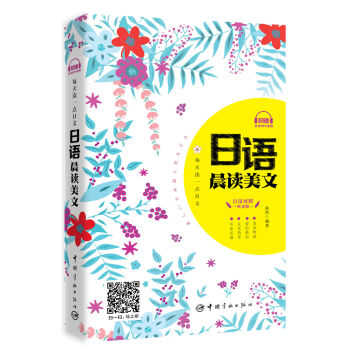
![泰戈爾詩選:飛鳥集+新月集(英文插圖版) [selected poems of Tagore] pdf epub mobi 電子書 下載](https://pic.windowsfront.com/12153932/58d2359cN9fd3d840.jpg)

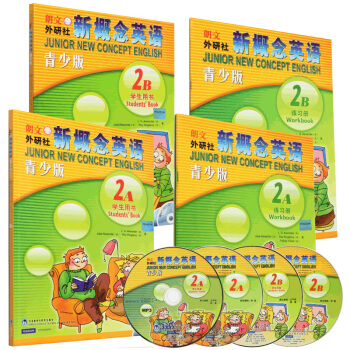



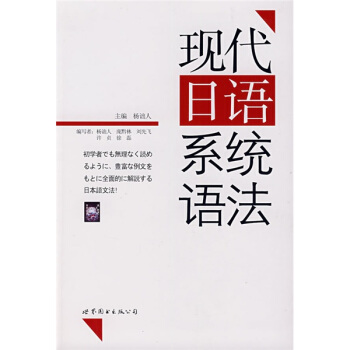
![麥格勞·希爾:英漢雙解科技大詞典 [McGraw-Hill Dictionary of Scientific and Technical Terms] pdf epub mobi 電子書 下載](https://pic.windowsfront.com/10619950/rBEDik_877YIAAAAAAFQe4ay96IAAD28wJiJY0AAVCT552.jpg)
![企鵝口袋書係列·偉大的思想:基督徒與羅馬之陷落(第3輯)(英漢雙語) [The Christians and the Fall of Rome] pdf epub mobi 電子書 下載](https://pic.windowsfront.com/10993758/rBEIDE_FtXgIAAAAAAB_qUCeg40AAAQNAFpVpkAAH_B069.jpg)
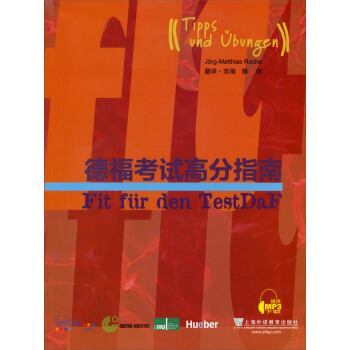


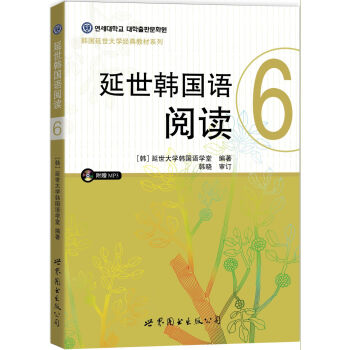

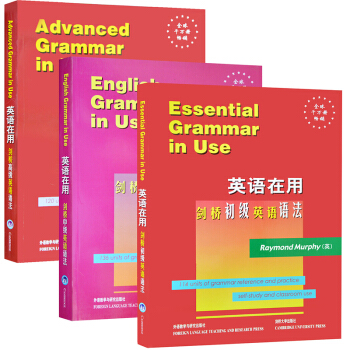
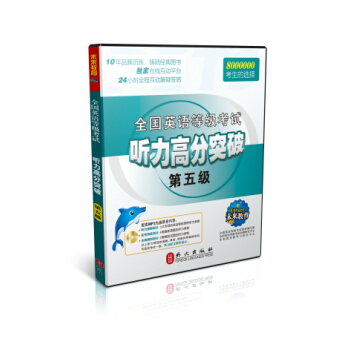

![中譯經典文庫·世界文學名著:愛瑪(英語原著版) [EMMA] pdf epub mobi 電子書 下載](https://pic.windowsfront.com/10161517/e45c3b43-3b50-4349-9942-4f89d31079a4.jpg)